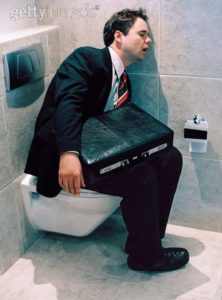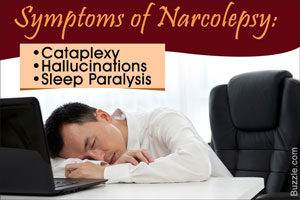
What is Narcolepsy?
Narcolepsy is a brain disorder that makes you feel sleepy most of the time. People with narcolepsy sometimes fall asleep all of a sudden, even when they don’t expect to. They can even fall asleep while they are in the middle of activities, such as eating, talking, or driving.
People usually develop narcolepsy during their teens or early 20s. Some people get it earlier and others later. Once it starts, the disorder can make it hard to work, do schoolwork, or do other normal activities.
What are the Symptoms of Narcolepsy?
The symptoms can include:
●Feeling sleepy during the day.
●Falling asleep all of a sudden, often at inappropriate times – Some people call these “sleep attacks.”
●Suddenly falling down, going limp, or feeling weak, especially when excited, angry, or laughing – The medical term for this is “cataplexy.”
●Being unable to move or speak in the few moments right after waking or just before falling asleep.
●Seeing, feeling, or hearing things that are not really there in the few moments before falling asleep or right after waking up – This can be scary and feel very real.
Some people with narcolepsy also have problems with depression or anxiety. Symptoms of depression include feeling sad most of the time, or losing interest in things you used to like to do. Symptoms of anxiety include feeling worried most of the time.
What is the Main Cause of Narcolepsy?
Many cases of narcolepsy are thought to be caused by a lack of the brain chemical hypocretin (also known as orexin), which regulates sleep. This deficiency is thought to result from the immune system mistakenly attacking parts of the brain that produce hypocretin.

Will I Need Tests?
Yes. If your doctor or nurse suspects you have narcolepsy, he or she might send you for a “sleep study.” For the study, you go to a sleep lab where you are hooked up to different machines that monitor your heart rate, breathing, brain activity, and other body functions while you sleep at night. Several hours after the sleep study is done, another test is done in which the lights are dimmed and you are given privacy and asked to try napping several times.
People with narcolepsy have abnormal sleep patterns during naps and at night. These abnormal patterns can be detected during the studies. click for sleep test details…here
How is Narcolepsy Treated?
Narcolepsy is usually treated with behavior changes. People with the disorder should:
●Avoid medicines that can make people sleepy, such as some allergy medicines.
●Take naps just before important events and at scheduled times during the day.
●Keep a regular sleep schedule.
●Make sure they get enough sleep at night.
People who are still very sleepy even if they make these changes can be treated with medicines to help them stay awake. These medicines can help, but even with treatment, people can still feel sleepy. That’s why even people who are being treated have to be careful about the activities they do. Driving, for example, can be dangerous for people with narcolepsy.
The medicines used to help people stay awake can sometimes cause high blood pressure, decreased appetite, and other problems. If your doctor prescribes one of these medicines, make sure you understand the risks.
People who have muscle weakness or go limp when they feel strong emotions can get medicines to help with that problem, too.
Can Narcolepsy go away on its own?
Narcolepsy can be a difficult condition to live with, with debilitating excessive daytime sleepiness and sudden weakness called cataplexy, so it is natural to wonder about the long-term prognosis.

Is Narcolepsy Considered a Mental Illness?
Narcolepsy without comorbid psychiatric conditions can be mistaken for psychiatric illness, including psychosis. It is important to note that obstructive sleep apnea, often seen in patients with narcolepsy, is also associated with psychiatric disorders.
Can Narcoleptics Drive?
When sleepiness is under good control, many people with narcolepsy are safe to drive. However, they must know their limits. Some individuals may be safe driving around town for 30 minutes but not on a four-hour, boring highway drive.